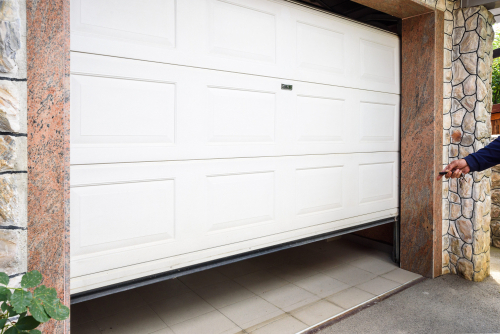During the colder and wetter winter months of the year, your garage door and its opener may experience problems that do not happen when the weather is warmer and dryer. These tips will help you to avoid some problems and fix the problems that do develop.
Three Wintertime Problems with Your Garage Door and Automatic Opener
The winter months of the year are often colder, windier and wetter than the rest of the year. These weather changes can lead to problems with your garage door and its automatic opener that do not happen when the weather is mild and dry. These tips can help you to avoid problems and fix small issues, but bigger problems should always be handled by a professional who performs garage door repair in Orange County.
Hardened Grease
Your garage door requires lubricant on all of its moving parts. Cold weather can harden the grease and oils that are used to lubricate the door’s wheels, rollers, hinges, pulleys, bearings, tracks, and latches. The hardened grease should be removed with a grease solvent. Once it is removed, a silicone-based lubricant can be applied to the affected parts. You can also apply a new layer of lubricant every six months for preventive maintenance.
Warped Tracks
The garage door’s tracks can become warped or contracted in cold, wet weather. If you notice that the garage door shakes or makes a lot of noise, warped tracks could be the problem. This situation requires professional repairs, and the tracks may need to be replaced if they have significant wear and tear.
Broken Springs
Garage doors usually have two springs that balance the weight of the door as it opens or closes. A sudden drop in temperature can cause the metal makeup of these garage door components to rapidly contract. This can crack or fully break the spring. This situation often happens when you open your garage door on a cold morning. A broken spring should be professionally replaced. Applying a silicone-based lubricant to the springs can help to lessen the contraction of metal that takes place during the winter.











